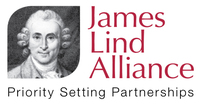Results

The Anaesthesia and Perioperative Care Priority Setting Partnership is a collaborative effort involving patients, the public and clinical professionals, identifying the most important directions for new research in anaesthesia and perioperative care.
This process has been facilitated by the James Lind Alliance (JLA), a non-profit making initiative established in 2004 which aims to bring these groups together to identify and prioritise the top 10 uncertainties or 'unanswered questions' about treatments they collectively consider to be most important. The JLA process is an effective way to ascertain the aspects of care which truly matter both to patients and to clinicians.
The Partnership held its final workshop on Tuesday May 12th 2015. Representatives from 23 partner organisations (13 multidisciplinary professional societies and 10 patient groups) chose the ten most important research topics for the specialty of anaesthesia and perioperative care as:
- What can we do to stop patients developing chronic pain after surgery?
- How can patient care around the time of emergency surgery be improved?
- What long-term harm may result from anaesthesia, particularly following repeated anaesthetics?
- What outcomes should we use to measure the 'success' of anaesthesia and perioperative care?
- How can we improve recovery from surgery for elderly patients?
- For which patients does regional (local) anaesthesia give better outcomes than general anaesthesia?
- What are the effects of anaesthesia on the developing brain?
- Do enhanced recovery programmes (fast-track surgery to speed up patient recovery) improve short and long-term outcomes?
- How can pre-operative exercise or fitness training, including physiotherapy, improve outcomes after surgery?
- How can we improve communication between the teams looking after patients throughout their surgical journey?
This information, along with all the other data collected by the surveys, has been made available to all the participating organisations, via the National Institute of Academic Anaesthesia who will consider how to incorporate these themes into future research over the next few months.
These ten most important research topics were distilled in stages from a list of 92 and a subsequent list of 25 priorities:
 92 summary questions.pdf (291 KB)
92 summary questions.pdf (291 KB)
 25 most popular questions.pdf (203 KB)
25 most popular questions.pdf (203 KB)
The breadth of this top 10 reflects the importance of the patient pathway as a whole, from contemplation of a surgical procedure, to plans for postoperative care and long-term wellbeing for patients.
Further information on this exercise and the steps undertaken to reach this top 10 can be found on the PSP pages of the NIAA website.







